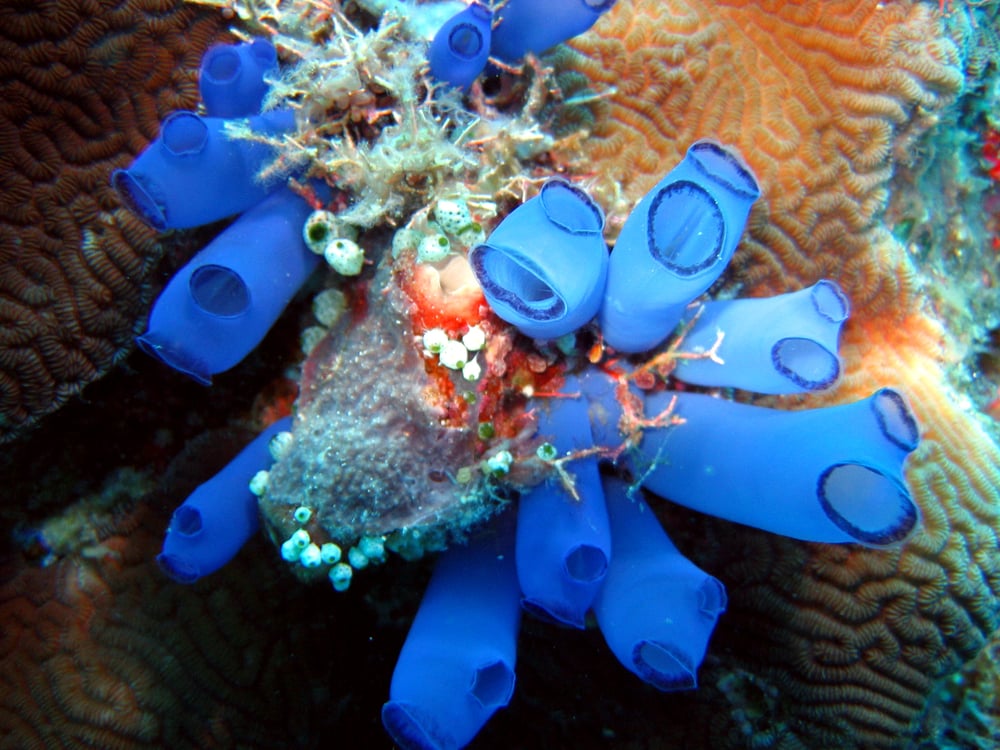It might seem odd to use a tiny sea creature to explore human genetics. However, as recently reported on Shamini Bundell’s Nature Podcast, marine organisms known as sea squirts may shed light on the origins of vertebrate animals – including humans. That research involved studying missing genes, which could be a significant factor in positive evolutionary processes.
What Are Missing Genes?
First, what, exactly is “gene loss?” While the term may sound negative, gene loss is a natural part of evolution. The term refers to the loss of a specific gene as a species evolves, thanks largely in part to natural selection. “Missing genes” may occasionally have a negative effect on individual organisms, leading to disease or deformation. However, as reported in the Nature Podcast, gene loss can also lead to positive evolutionary traits. Take, for example, a fruit bat that has lost a gene that inhibits the processing of sugar. This is a positive development, as it allows the bat to thrive while eating a sugar-rich diet.
Sea Squirts and Missing Genes
To explore the impact of missing genes, researcher Cristian Cañestro studied sea squirts, otherwise known as tunicates. These small marine animals are filter feeders, typically found attached to rocks or the bottoms of boats. Sea squirts are sessile, or immobile, organisms. It may seem as though they don’t have much in common with humans; however, some sea squirts undergo a larval stage that looks surprisingly similar to that of vertebrates like humans. Of course, humans are far from sessile. However, genetic evidence suggests a common ancestor between humans and tunicates: tiny, free-swimming creatures known as appendicularians. So, how did tunicates evolve into their sessile state? The answer could involve missing genes, or the process of long-term gene loss.
Gene Loss and Evolution
As explained on the podcast, Cañestro’s research focused on one particular kind of tunicate – an unusual group called the appendicularians, which scientists believe to be the last common ancestor of all tunicates. With this in mind, the researchers concluded that these creatures’ genetic structure could give insight into that of the last common ancestor between vertebrates and tunicates. One researcher, PhD student Alfonso Ferrández-Roldán, explored the appendicularian genome in search of some of the genes that one would typically see in both tunicates and vertebrates. However, Ferrández-Roldán was surprised to see several “missing genes” in the test subjects. Those organisms had simply lost those genes at some point during their evolution. Ferrández-Roldán wanted to know: Did those missing genes have an impact on the organisms? The answer was yes. In one case, the loss of certain genes changed the appendicularian heart to a structure better suited to a free-swimming organism, suggesting that these particular creatures may have evolved from sessile organisms. In other words, a major gene loss could have been a response to an evolutionary need to swim free.
Understanding Gene Loss in Human Evolution
While further research is needed, this study illustrates the different implications of missing genes. Namely, this research helped scientists conclude that gene loss can, in fact, be an adaptive measure – in other words, a positive development in response to changing conditions.
_____
Ultimately, these insights into the role of gene loss may have intriguing implications for future genetic research. This study is just the latest example of creatively exploring the connections in genomic structures across organisms.
QPS is a GLP- and GCP-compliant contract research organization (CRO) delivering the highest grade of discovery, preclinical and clinical drug research development services. Since 1995, it has grown from a tiny bioanalysis shop to a full-service CRO with 1,100+ employees in the U.S., Europe and Asia. Today, QPS offers expanded pharmaceutical contract R&D services with special expertise in neuropharmacology, DMPK, toxicology, bioanalysis, translational medicine and clinical development. An award-winning leader focused on bioanalytics and clinical trials, QPS is known for proven quality standards, technical expertise, a flexible approach to research, client satisfaction and turnkey laboratories and facilities. Through continual enhancements in capacities and resources, QPS stands tall in its commitment to delivering superior quality, skilled performance and trusted service to its valued customers. For more information, visit www.qps.com or email info@qps.com.








